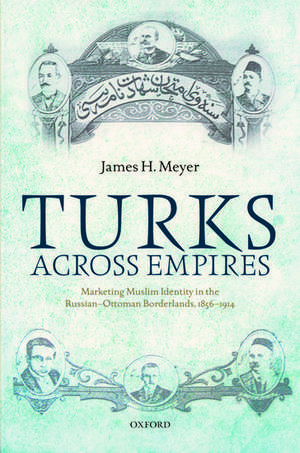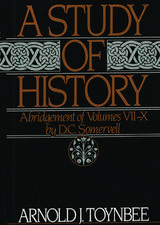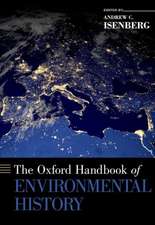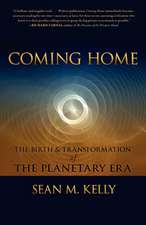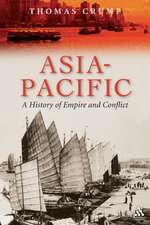Turks Across Empires: Marketing Muslim Identity in the Russian-Ottoman Borderlands, 1856-1914: Oxford Studies in Modern European History
Autor James H. Meyeren Limba Engleză Hardback – 12 noi 2014
| Toate formatele și edițiile | Preț | Express |
|---|---|---|
| Paperback (1) | 239.67 lei 31-37 zile | |
| OUP OXFORD – 17 iul 2019 | 239.67 lei 31-37 zile | |
| Hardback (1) | 728.33 lei 31-37 zile | |
| OUP OXFORD – 12 noi 2014 | 728.33 lei 31-37 zile |
Din seria Oxford Studies in Modern European History
- 30%
 Preț: 672.49 lei
Preț: 672.49 lei - 13%
 Preț: 277.85 lei
Preț: 277.85 lei -
 Preț: 220.90 lei
Preț: 220.90 lei - 27%
 Preț: 600.54 lei
Preț: 600.54 lei - 11%
 Preț: 233.89 lei
Preț: 233.89 lei - 16%
 Preț: 706.30 lei
Preț: 706.30 lei - 25%
 Preț: 521.36 lei
Preț: 521.36 lei - 17%
 Preț: 581.63 lei
Preț: 581.63 lei - 17%
 Preț: 582.62 lei
Preț: 582.62 lei - 17%
 Preț: 583.37 lei
Preț: 583.37 lei - 25%
 Preț: 581.23 lei
Preț: 581.23 lei - 30%
 Preț: 485.80 lei
Preț: 485.80 lei - 14%
 Preț: 320.51 lei
Preț: 320.51 lei - 8%
 Preț: 341.60 lei
Preț: 341.60 lei - 27%
 Preț: 831.15 lei
Preț: 831.15 lei -
 Preț: 309.23 lei
Preț: 309.23 lei - 31%
 Preț: 728.01 lei
Preț: 728.01 lei - 26%
 Preț: 876.57 lei
Preț: 876.57 lei - 12%
 Preț: 351.17 lei
Preț: 351.17 lei - 14%
 Preț: 297.41 lei
Preț: 297.41 lei - 14%
 Preț: 294.79 lei
Preț: 294.79 lei - 13%
 Preț: 239.67 lei
Preț: 239.67 lei - 30%
 Preț: 670.43 lei
Preț: 670.43 lei - 30%
 Preț: 612.43 lei
Preț: 612.43 lei - 27%
 Preț: 661.35 lei
Preț: 661.35 lei - 17%
 Preț: 581.56 lei
Preț: 581.56 lei - 17%
 Preț: 580.86 lei
Preț: 580.86 lei - 17%
 Preț: 582.96 lei
Preț: 582.96 lei
Preț: 728.33 lei
Preț vechi: 1006.69 lei
-28% Nou
Puncte Express: 1092
Preț estimativ în valută:
139.39€ • 144.79$ • 115.78£
139.39€ • 144.79$ • 115.78£
Carte tipărită la comandă
Livrare economică 22-28 ianuarie 25
Preluare comenzi: 021 569.72.76
Specificații
ISBN-13: 9780198725145
ISBN-10: 0198725140
Pagini: 224
Ilustrații: 11 black and white figure/illustrations
Dimensiuni: 163 x 241 x 19 mm
Greutate: 0.49 kg
Ediția:New.
Editura: OUP OXFORD
Colecția OUP Oxford
Seria Oxford Studies in Modern European History
Locul publicării:Oxford, United Kingdom
ISBN-10: 0198725140
Pagini: 224
Ilustrații: 11 black and white figure/illustrations
Dimensiuni: 163 x 241 x 19 mm
Greutate: 0.49 kg
Ediția:New.
Editura: OUP OXFORD
Colecția OUP Oxford
Seria Oxford Studies in Modern European History
Locul publicării:Oxford, United Kingdom
Recenzii
An inveterate archive-diver with an impressive linguistic toolkit, Meyer is well-prepared for such a mission. Turks Across Empires is deeply-researched, drawing on sources in Russian and multiple Turkic languages from no fewer than thirteen archives in the former Soviet Union and Turkey.
a skilfully crafted and soundly constructed account ... Meyer's book is a page-turner, admittedly not a common trait in scholarly history works. It frequently turns into a sort of amusement park for historians, where the author parades so many newly unearthed, rich in detail, and immensely informative archival documents ... finely tackles somewhat delicate yet thorny matters such as Turkism, Pan-Turkism, Ottomanism, and Islamism, as well as addresses the lives of humans who were doomed and perished or sometimes enriched and saved by those very same matters.
This thoroughly researched monograph offers a noteworthy caveat to the infatuation with 'identity' that for almost two decades characterized the post-Soviet scholarship on the non-Russian peoples of the Russian and Soviet empires ... Meyer leaves us convinced that discourses and claims of identity need to be understood in relation to concrete power configurations and resulting opportunities, and not as articulations of perennial or even would-be nationhood.
James Meyer's Turks across Empires is a very valuable and intriguing reassessment of the origins of pan-Turkism through an in-depth examination of some of its leading figures ... a great pleasure to read ... Meyer's book is 'revisionist' in the sense that it successfully challenges many assumptions and arguments in the study of Russia's Muslims and pan-Turkism ... provides a more complete, flesh-and-bone biographical reconstruction of these intellectuals and their milieu ... the depiction of Kazan Tatars as 'insider Muslims' of Tsarist Russia is simply brilliant.
[Turks Across Empires] presents a wealth of information drawn from archives, periodical publications, memoirs, and other documentary evidence in the languages needed for such a study: Ottoman, Russian, Tatar, and the Turkic of Azerbaijan ... As a result, Meyer's narrative fills in gaps and makes connections that nicely complement the steadily expanding literature on the late Ottoman/late Romanov period and the Turks who shaped their own and wider Turkic identities in that era. By extension, the identity question has profound implications for twentieth and even twenty-first century intellectual and political trajectories.
Based on an impressive array of sources from Turkey, Russia, Ukraine, Georgia and Azerbaijan, James Meyer's monograph not only expands the knowledge about the Muslims of Russia but also provides a widely applicable argument about instrumentalization of identity in different political contexts.
James Meyer pursues an imaginative approach to the final decades of the Russian and Ottoman Empires by focusing on the biographies of three activists -- a Crimean Tatar, an Azerbaijani, and a Volga Tatar -- who, while born in Russia, were men with substantial interest and experience traveling to and living in the empire's southern neighbor. Biography becomes, thus, the modus operandi for unravelling the roles of these and similar men -- "trans-imperial people," as Meyer calls them -- in propagating pan-Turkism and suggesting it as a new identity for Turks, who were also overwhelmingly Muslim, everywhere.
A major contribution of this work is its use of original source material in Turkish, Ottoman Turkish and Russian. Using personal correspondence and Ottoman and Russian tsarist era archives, Meyer traces four distinct periods to their trans-imperial existence moving back and forth between Istanbul, Kazan, Crimea, and Azerbaijan ... an important contribution in several ways.
impressive ... James Meyer's book is a collective biography of the most prominent pan-Turkists -- Yusuf Akçura (1876-1935), Ahmet Agğaogğlu (1869-1939), and Ismail Gasprinskii (1851-1914) -- by means of which the author reveals the patterns of migration from the Middle Volga, Southeast Caucasus, and Crimea to the Ottoman lands and back, as well as local politics in each protagonist's original region ... The fruit of this admirable exercise is most visible when Meyer demonstrates the simultaneous formation of population policy on both the Russian and Ottoman shores of the Black Sea.
Few Ottomanists understand the complexities of the situation of Muslims in the Russian Empire, while scholars of the Russian Empire have tended to imagine the Ottoman Empire only in broad brushstrokes. Meyer is one of a small new crop of scholars who possess the requisite skills ... The narrative is richly documented and thick -- perhaps the best account of VolgaUral public life in English
The monograph of Meyer is a nice example of a study on borderland and cross-cultural interplay between Russia and Turkey.
path-breaking ... Meyer demonstrates brilliantly the shifts in articulation of cultural and political identities as well as change of the specific vocabulary in the written texts of the Turkic intellectuals.
Meyer, assistant professor of Islamic world history at Montana State University, draws from Turkish, Georgian, Azerbaijani, and Russian archives to bridge the gap between borderlands and peoples in this innovative study of the origins of pan-Turkism. Tautly argued and empirically grounded, the book highlights the diverse nature of identity formulation during the late imperial era, when the forces of modernity presented new challenges to traditional religious communities.
the book does a very good job in bringing the complexities of Russia's Muslim intellectual life of the late imperial period close to a readership broadly interested in the modernization of Russia's peripheries and in Russian-Ottoman relations ... Meyer convincingly demonstrates that since the 1870s Muslim communities in inner Russia perceived the state as a threat, especially in view of the administrative attempts at taking control over Muslim schools.
a skilfully crafted and soundly constructed account ... Meyer's book is a page-turner, admittedly not a common trait in scholarly history works. It frequently turns into a sort of amusement park for historians, where the author parades so many newly unearthed, rich in detail, and immensely informative archival documents ... finely tackles somewhat delicate yet thorny matters such as Turkism, Pan-Turkism, Ottomanism, and Islamism, as well as addresses the lives of humans who were doomed and perished or sometimes enriched and saved by those very same matters.
This thoroughly researched monograph offers a noteworthy caveat to the infatuation with 'identity' that for almost two decades characterized the post-Soviet scholarship on the non-Russian peoples of the Russian and Soviet empires ... Meyer leaves us convinced that discourses and claims of identity need to be understood in relation to concrete power configurations and resulting opportunities, and not as articulations of perennial or even would-be nationhood.
James Meyer's Turks across Empires is a very valuable and intriguing reassessment of the origins of pan-Turkism through an in-depth examination of some of its leading figures ... a great pleasure to read ... Meyer's book is 'revisionist' in the sense that it successfully challenges many assumptions and arguments in the study of Russia's Muslims and pan-Turkism ... provides a more complete, flesh-and-bone biographical reconstruction of these intellectuals and their milieu ... the depiction of Kazan Tatars as 'insider Muslims' of Tsarist Russia is simply brilliant.
[Turks Across Empires] presents a wealth of information drawn from archives, periodical publications, memoirs, and other documentary evidence in the languages needed for such a study: Ottoman, Russian, Tatar, and the Turkic of Azerbaijan ... As a result, Meyer's narrative fills in gaps and makes connections that nicely complement the steadily expanding literature on the late Ottoman/late Romanov period and the Turks who shaped their own and wider Turkic identities in that era. By extension, the identity question has profound implications for twentieth and even twenty-first century intellectual and political trajectories.
Based on an impressive array of sources from Turkey, Russia, Ukraine, Georgia and Azerbaijan, James Meyer's monograph not only expands the knowledge about the Muslims of Russia but also provides a widely applicable argument about instrumentalization of identity in different political contexts.
James Meyer pursues an imaginative approach to the final decades of the Russian and Ottoman Empires by focusing on the biographies of three activists -- a Crimean Tatar, an Azerbaijani, and a Volga Tatar -- who, while born in Russia, were men with substantial interest and experience traveling to and living in the empire's southern neighbor. Biography becomes, thus, the modus operandi for unravelling the roles of these and similar men -- "trans-imperial people," as Meyer calls them -- in propagating pan-Turkism and suggesting it as a new identity for Turks, who were also overwhelmingly Muslim, everywhere.
A major contribution of this work is its use of original source material in Turkish, Ottoman Turkish and Russian. Using personal correspondence and Ottoman and Russian tsarist era archives, Meyer traces four distinct periods to their trans-imperial existence moving back and forth between Istanbul, Kazan, Crimea, and Azerbaijan ... an important contribution in several ways.
impressive ... James Meyer's book is a collective biography of the most prominent pan-Turkists -- Yusuf Akçura (1876-1935), Ahmet Agğaogğlu (1869-1939), and Ismail Gasprinskii (1851-1914) -- by means of which the author reveals the patterns of migration from the Middle Volga, Southeast Caucasus, and Crimea to the Ottoman lands and back, as well as local politics in each protagonist's original region ... The fruit of this admirable exercise is most visible when Meyer demonstrates the simultaneous formation of population policy on both the Russian and Ottoman shores of the Black Sea.
Few Ottomanists understand the complexities of the situation of Muslims in the Russian Empire, while scholars of the Russian Empire have tended to imagine the Ottoman Empire only in broad brushstrokes. Meyer is one of a small new crop of scholars who possess the requisite skills ... The narrative is richly documented and thick -- perhaps the best account of VolgaUral public life in English
The monograph of Meyer is a nice example of a study on borderland and cross-cultural interplay between Russia and Turkey.
path-breaking ... Meyer demonstrates brilliantly the shifts in articulation of cultural and political identities as well as change of the specific vocabulary in the written texts of the Turkic intellectuals.
Meyer, assistant professor of Islamic world history at Montana State University, draws from Turkish, Georgian, Azerbaijani, and Russian archives to bridge the gap between borderlands and peoples in this innovative study of the origins of pan-Turkism. Tautly argued and empirically grounded, the book highlights the diverse nature of identity formulation during the late imperial era, when the forces of modernity presented new challenges to traditional religious communities.
the book does a very good job in bringing the complexities of Russia's Muslim intellectual life of the late imperial period close to a readership broadly interested in the modernization of Russia's peripheries and in Russian-Ottoman relations ... Meyer convincingly demonstrates that since the 1870s Muslim communities in inner Russia perceived the state as a threat, especially in view of the administrative attempts at taking control over Muslim schools.
Notă biografică
James Meyer is an historian of the Turkic World, working especially on the Middle East and Russia. Employing sources written in Turkish, Russian, Ottoman Turkish, and the Arabic-script versions of Turkic languages spoken in Russia and the former USSR, he addresses issues such as human mobility, communications, and cross-cultural interactions in late imperial Russia, the Ottoman Empire, and Turkey.
